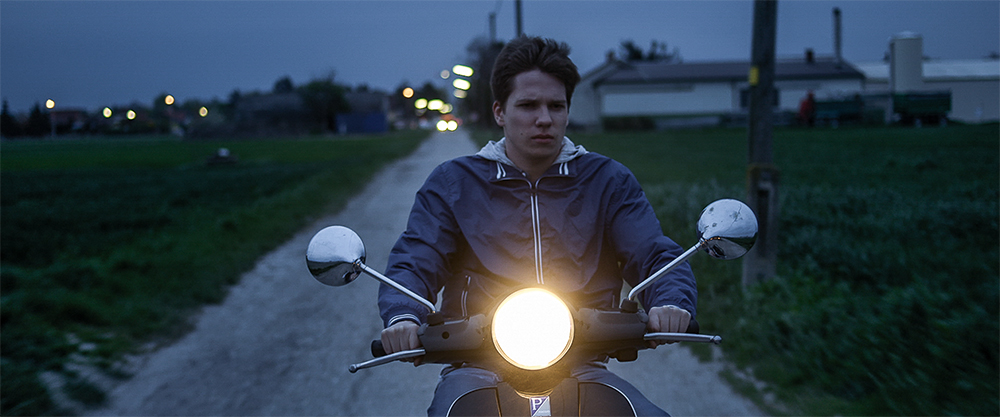Today’s Department of Film and Television (Film Academy Vienna) at the mdw is a world-renowned place of innovative artistic training for film and media creatives that is oriented toward lively transdisciplinarity, theoretical and reflective analysis, and critical positioning in an age of global media.

To this day, it is Austria’s only university-level institution for the training of film professionals, and from the very beginning, it has produced gifted and successful international filmmakers such as Peter Kubelka, Ferry Radax, Ulrich Seidl, Barbara Albert, Jessica Hausner, Michael Glawogger, and Martin Gschlacht, to name just a few. The list of professors currently teaching at Film Academy Vienna—Michael Haneke, Wolfgang Murnberger, Götz Spielmann, Thomas Benesch, Wolfgang Thaler, Danny Krausz, and Michael Hudecek, among many others—speaks for itself, as does the long list of talented students who, year after year, earn themselves wide recognition at film festivals and in the industry at large.
In the current academic year of 2016/17, this central institution of Austria’s film culture has an anniversary to celebrate: Film Academy Vienna is turning 65. Its history began back in the winter semester of 1951/52 when Austrian director and producer Walter Kolm-Veltée conceived of what he called a “cinematic arts” class—and 26 February 1952 saw the then-Academy of Music and Performing Arts Vienna establish the “Special Course for Cinematic Arts” in accordance with Kolm-Veltée’s concept. Over the years that followed, this course played host to the creation of several cultural films, remarkable experimental films, and the first shortto medium-length feature films, and this last group of works was to prove formative for Austria’s film history.
The Special Course for Cinematic Arts was at first housed at what was then the Academy’s main building at Lothringerstraße 18, after which several moves ensued before it eventually found its current home in a palatial structure at Metternichgasse 12 in 1968. When the ORF moved into its new building on the Küniglberg in 1972, its old film studios at Maxingstraße 13a in the 13th district were likewise occupied by the Film Academy, which used them until a new film studio was opened directly on the mdw’s main campus in 2005. Shortly prior to that, reforms to Austria’s university legislation led to the setup of five majors, and these have been run as baccalaureate and master’s degree programmes since 2003. The film Academy also added an MA programme entitled Digital Art – Compositing, and 2012 saw the addition of Media and Film Studies. Resident specialists in this field are currently working on the research project Metternichgasse 12. Eine Archäologie, which examines Film Academy Vienna’s institutional development as well as the films that have been produced by students while studying here (see the preceding article featuring Kerstin Parth and Albert Meisl).
Numerous instructors have left their mark on Film Academy Vienna over the decades and made significant contributions to the development of a programme that conveys theory and practice on the highest level. Leadership of the Film Academy, which has been of central significance to Austria’s status as a land of auteur films, has been in the hands of individuals including Ernst Haeussermann (1965–1971), Harald Zusanek (1971–1973), Robert Schöfer (1973–1975), Hannelore Götzinger (1993–1997), Wolfgang Glück (1997– 2002), Peter Mayer (2002–2008), Peter Patzak (2008–2013), and (since 2014) Claudia Walkensteiner-Preschl.
Long-time Screenplay Writing and Dramaturgy professor Walter Wippersberg wrote the following in an assessment penned for the occasion of Film Academy Vienna’s 50th birthday in 2002: “It is a fact that the boundaries between training and professional practice are becoming increasingly blurred, in the sense that many students are attaining a thoroughly professional level of quality in their work even before they graduate. Thanks to this, the films by our students are winning prizes not only at student film competitions but also at ‘real, grown-up’ festivals.”
Wippersberg’s statement has held true to this day, and Film Academy Vienna is immensely proud of its students’ numerous successes, the enormous number of festival participations (nearly 300 each year), and the many prizes and honours they have received (Diagonale, Max-Ophüls-Festival, an Oscar nomination for “Best Short Film”, and numerous others). Moreover, Film Academy Vienna has been listed for two years now by the American industry publication Hollywood Reporter as one of the 15 best film schools worldwide.
With all this in mind, Film Academy Vienna will be marking its 65th birthday with numerous activities, celebrations, and retrospective presentations throughout 2017 as it continues to take on the challenges inherent in providing university-level training in artistic and innovative media creation and filmmaking.

